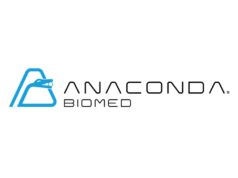
Genzyme has announced that Health Canada has approved Aubagio (teriflunomide) 14mg as monotherapy for the treatment of patients with relapsing remitting multiple sclerosis (RRMS) to reduce the frequency of clinical exacerbations and to delay the accumulation of physical disability.
“There are many patients who simply cannot tolerate injections and have had no simple, effective, once-daily oral medication until now,” said Mark Freedman, director, Multiple Sclerosis Research Unit and professor of Neurology and senior scientist at the University of Ottawa and Ottawa Hospital Research Institute, Canada. “As a new oral-treatment option, Aubagio is an important advancement for the multiple sclerosis community and may help improve quality of life for people living with this debilitating disease.”
The Health Canada approval was based on efficacy data from two phase III clinical trials—TEMSO (Teriflunomide multiple sclerosis oral) and TOWER (Teriflunomide oral in people with relapsing remitting multiple sclerosis). In the TEMSO trial, Aubagio 14mg significantly reduced the annualised relapse rate (p=0.0005) and the time to disability progression (p=0.0279) at two years vs. placebo in patients with RRMS. In the TOWER trial, Aubagio 14mg significantly reduced the annualised relapse rate (p=0.0001) and the time to disability progression sustained for 12 weeks (p = 0.0442) was statistically significantly reduced vs. placebo in patients with RRMS.
“Multiple sclerosis impacts each person differently, which is why increased options are important when it comes to making personal treatment decisions. The more treatment options that are available the more choices Canadians living with multiple sclerosis have to potentially improve their overall quality of life,” said Karen Lee, vice president, research, Multiple Sclerosis Society of Canada. “As we learn more about multiple sclerosis and develop therapies that reduce the frequency and severity of relapses in RRMS, we hope that we will also uncover treatments for people whose disease is steadily progressing.”
New positive data from the TOPIC study of Aubagio was presented at the 29th Congress of the European Committee for Research and Treatment in Multiple Sclerosis (ECTRIMS) in Copenhagen, Denmark (2–5 October 2013). The double-blind, multi-centre trial enrolled 618 patients who had experienced a first-acute or sub-acute, well-defined neurological event consistent with demyelination as well as onset of symptoms within 90 days of randomisation, and MRI scan showing two or more lesions characteristic of the disease. The two-year study was designed to assess whether early initiation of Aubagio in patients who experienced their first neurological symptoms suggestive of multiple sclerosis could prevent or delay a second clinical attack.
The TOPIC study found Aubagio 14mg significantly reduced the risk of a new clinical relapse over the two-year study period.
There was a 35% reduction among patients who received Aubagio 14mg compared to placebo (p=0.0374).
Aubagio is also approved in the USA, Europe, Australia, Argentina, Chile, South Korea and Mexico for the treatment of relapsing forms of multiple sclerosis. Marketing applications for Aubagio are also under review by additional regulatory authorities globally.












